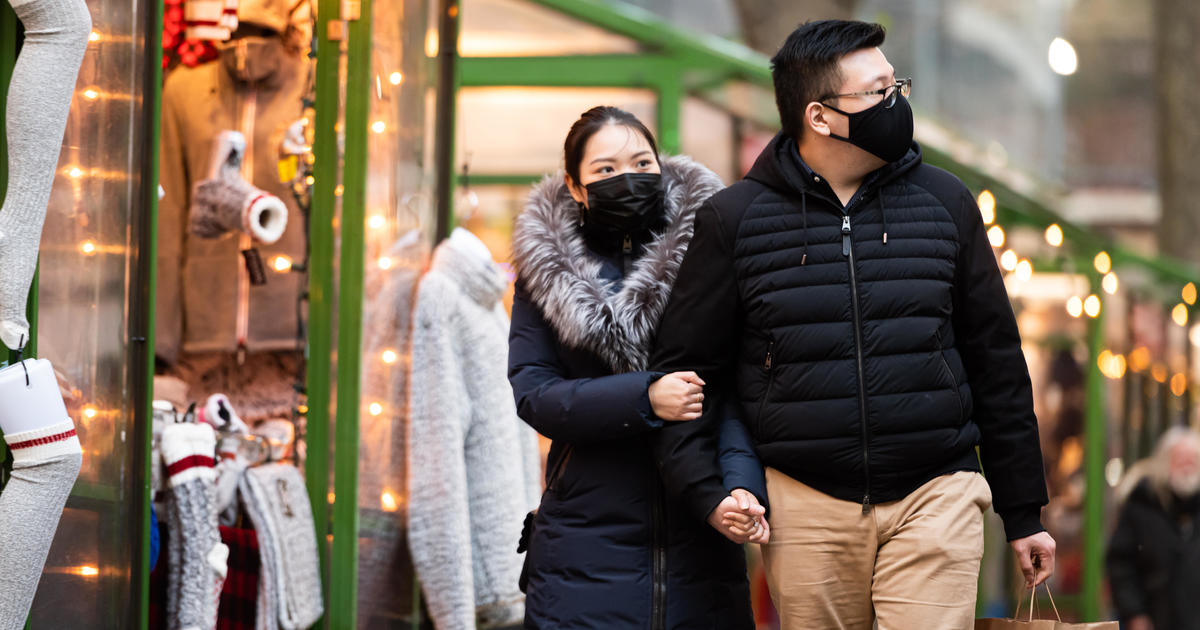
As debates over wearing masks continue to divide Americans, new research shows that covering your face isn't only good for public health — it can also boost the economy.
That's according to a working paper by four professors at the University of Utah who analyzed information on people's movements and credit card spending between February and the present. Their findings: When a state required mask-wearing, people moved around more and spent more money. They increased their spending by an average of $24 per month per person, boosting economic growth.
But who gives the order to mask up matters, too. When counties imposed mask requirements, that tended to depress economic activity. The reason: Residents view county orders to mask up as more alarming than state orders — a sign that COVID-19 risks in their geographic area are rising and that they're better off sticking close to home.
"State mandates are way more effective, at both the economic boost and the public-health aspect," said Nathan Seegert, an assistant professor of finance at the university and an author of the study.
The study also found that coronavirus cases flattened after a state issued guidelines asking people to wear masks — even as they moved around more. In a separate survey conducted as part of the research, people in Utah said they would be much more likely to go to a store if everyone was wearing a mask, if the store required masks or if a state mandate were in place.
"Despite participants recognizing that a state mask mandate would not ensure compliance, a state-enforced mask mandate substantially increases their willingness to go out to a store," the authors wrote.
The study adds to the body of research indicating that masks help contain the coronavirus. Research published by the U.S. Centers for Disease Control and Prevention earlier this month showed that counties in Kansas that required universal mask-wearing in public saw fewer infections than counties without such an order. In Massachusetts, the state's largest health care system required universal masking in its facilities in the spring — viruses among health care workers decreased dramatically.
In the Utah study, statewide mask mandates immediately led to a drop in coronavirus cases, an effect that lasted for two to three months after the mask requirement was first put in place.
With the explosive rise in COVID-19 now threatening to tip the economy back into recession, the research points to a potential tool for promoting public and economic health alike. With mask mandates, "policymakers do not face a trade-off between lives and livelihoods in combating COVID-19," the researchers said.
The results also demonstrate the importance of public messaging. In this case, health officials' guidance on how to prevent the coronavirus is a little like traffic signals for drivers, Seegert said.
"The reason I can go fast down the road when I see a green light is because I trust that the people going the other way have a red light, and they're stopped at the red light," he said. "If I trust that everyone is going to be wearing a mask and everyone is going to social distance, that will make it safer for me to go out to the park, to the zoo, to the local shop. But it's about this trust — that we're all complying and doing things together."
"save" - Google News
November 26, 2020 at 05:25AM
https://ift.tt/2J8uvEA
What can states do to save jobs? Order people to mask up - CBS News
"save" - Google News
https://ift.tt/2SvBSrf
https://ift.tt/2zJxCxA
Bagikan Berita Ini














0 Response to "What can states do to save jobs? Order people to mask up - CBS News"
Post a Comment